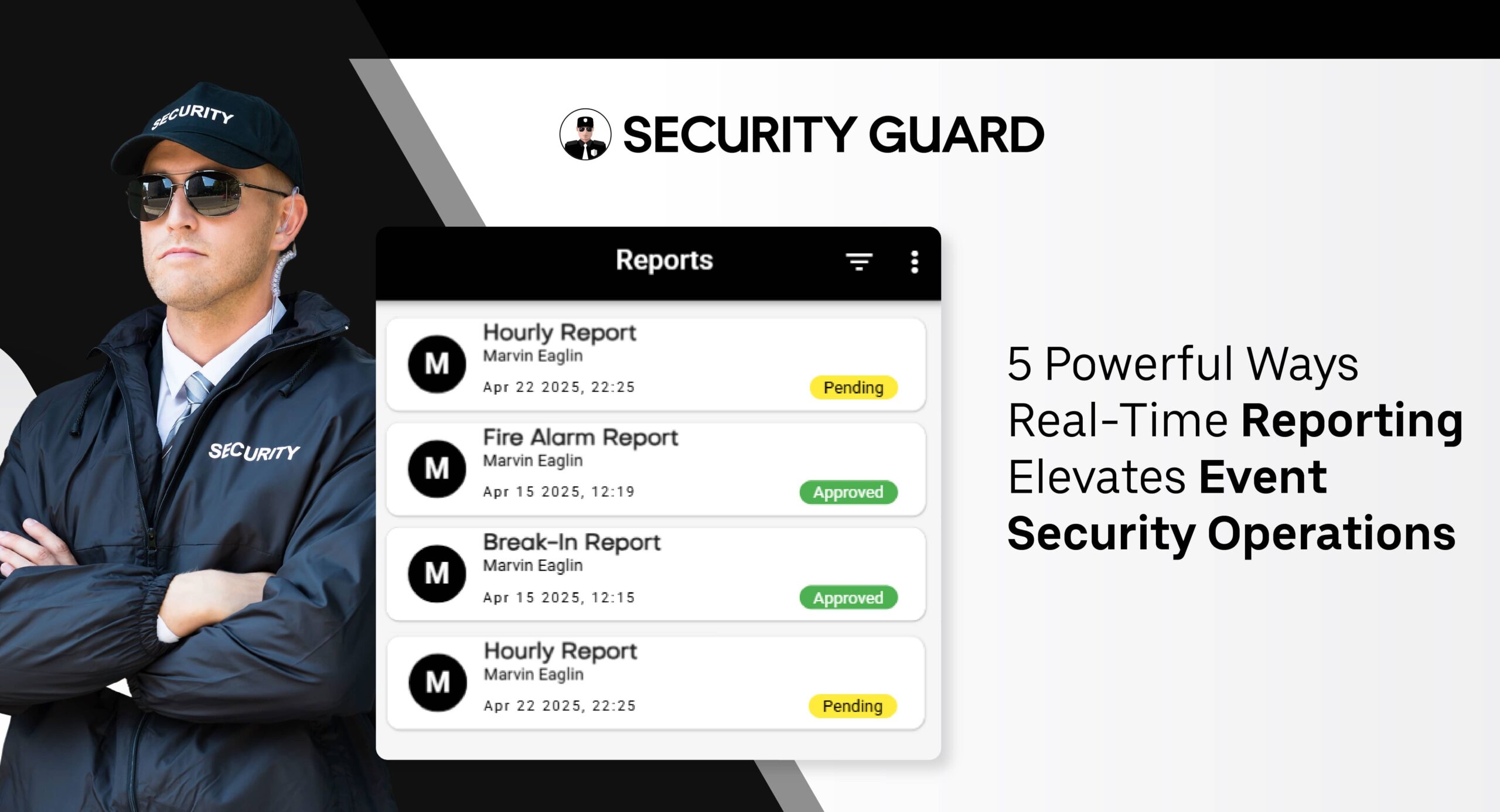Managing security for events in the modern era of large-scale operations—whether it’s a music festival in Austin, a corporate conference in New York, or a college football game in Alabama—requires more than just a team on the ground. It demands clarity, accountability, and fast decision-making powered by real-time information.
Traditional pen-and-paper methods have long struggled to keep up with the complexity of live events. They’re slow, error-prone, and inefficient when things change by the second. That’s why security professionals across the United States are adopting real-time reporting tools, like those offered by the security guard app, to stay ahead of threats and keep every guest, staff member, and asset safe.
Here’s a deep dive into how real-time reporting transforms event security management—from the first checkpoint scan to the last incident logged.
Real-Time Incident Logging Means Faster Response and Better Oversight
In any live event, things can change in an instant: an unruly guest, an equipment malfunction, or a suspicious package can disrupt operations. Real-time incident reporting allows security guards to log events as they happen—not hours later.
Using a mobile device, guards can:
- Submit detailed reports instantly from the field.
- Attach images, video, and audio for rich context.
- Alert supervisors or dispatch instantly via push notification or email.
These capabilities dramatically reduce the delay between an incident occurring and a response team taking action. It also means that event organizers, venue operators, or law enforcement get live updates, which supports faster, smarter decisions on the fly.
Whether you’re securing a concert arena in california or a political rally in florida, instant insights can make all the difference.
Enhanced Visibility Across Your Entire Security Operation
At large-scale events with multiple entry points, zones, and foot traffic areas, tracking your team’s movements manually is inefficient and risky. Real-time reporting combined with GPS tracking provides a clear, live map of guard activity.
From a central dashboard, supervisors can:
- Monitor which guards are actively patrolling.
- Verify guard tours and time-stamped check-ins.
- Detect any coverage gaps or delays in response.
This allows for true command-center control over your operation. Even from a mobile device or laptop, managers can see which guard is where, what they’re reporting, and how they’re responding to emerging threats.
This visibility is especially critical during high-attendance or high-risk events, such as sports playoffs, political conventions, or large-scale festivals.
Seamless Report Automation and Customizable Delivery
When an event wraps up, stakeholders want answers. What happened? What went well? Were there any issues? The days of chasing paper logs and manually typing out summaries are long gone.
Real-time reporting software enables:
- Automatic report generation based on collected guard data.
- Custom templates tailored to different clients or types of events.
- Scheduled delivery to key stakeholders via email in PDF or CSV format.
Whether it’s a venue manager, corporate client, or insurance partner, you can now send out polished, branded reports in minutes. This not only builds trust but positions your security operation as a reliable, organized partner.
With just a few clicks, you can showcase compliance, performance, and resolution metrics—delivered daily, weekly, or after every event.
Smarter Security Planning Through Data and Insights
Real-time reporting isn’t just about reacting fast—it’s about planning smarter. Every entry, timestamp, and patrol route logged in the system creates a record of operational performance. Over time, this data reveals trends that help you strengthen your security strategy.
With built-in analytics, you can:
- Identify high-risk zones or recurring incidents.
- Evaluate which guard shifts encounter the most issues.
- Allocate personnel based on real patterns, not assumptions.
For example, if you’re consistently seeing disturbances near vip areas after 9 p.m., you’ll know to double coverage or shift personnel accordingly at future events.
This level of insight helps optimize guard deployments, reduce risk, and improve ROI for both your team and your clients.
Reduced Administrative Burden, Zero Paperwork Hassles
Let’s face it—paperwork slows everything down. It’s easy to lose, hard to read, and painful to organize. When you digitize your reports and patrol logs with real-time tools, you eliminate those headaches completely.
Your security team can now:
- Submit standardized reports with guided mobile forms.
- Avoid skipped fields or messy handwriting errors.
- Instantly upload and store reports in a secure cloud database.
Supervisors no longer have to chase down incomplete logs, decipher notes, or spend hours organizing binders. Everything is automated, searchable, and backed up for audits, legal compliance, and future reference.
This frees up your team to focus more on what matters most—keeping people safe.
Final Thoughts: The Future of Event Security is Real-Time and Mobile
Events are high-pressure environments where success depends on how quickly and accurately you respond to the unexpected. Real-time reporting ensures that your team is always one step ahead—with tools that boost performance, protect your team, and impress your clients.
If you’re a security director, venue manager, or operations coordinator working events across the united states, it’s time to leave outdated systems behind. Whether you’re securing a weekend concert or a month-long festival, the security guard app delivers the modern tools you need to raise the standard of protection.
Start managing your event security smarter—with the speed, precision, and professionalism that only real-time reporting can provide.



Leave A Comment